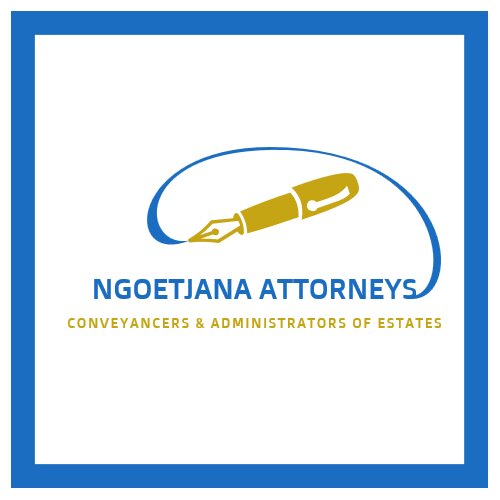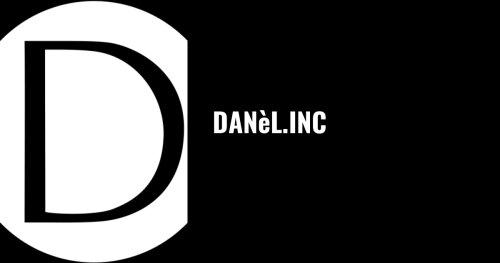Best Trusts Lawyers in Centurion
Share your needs with us, get contacted by law firms.
Free. Takes 2 min.
List of the best lawyers in Centurion, South Africa
About Trusts Law in Centurion, South Africa
In Centurion, South Africa, trusts are legal arrangements that allow a person or entity (the trustee) to hold assets for the benefit of others (the beneficiaries). Trust law in South Africa is governed primarily by the Trust Property Control Act 57 of 1988. Trusts are commonly established for estate planning, asset protection, charitable purposes, or to manage assets for minors or family members who may not be able to do so themselves. Whether you are setting up a family trust, business trust, or charitable trust, understanding the legal requirements and obligations is essential in Centurion.
Why You May Need a Lawyer
There are several situations where legal assistance is invaluable in connection with trusts:
- Establishing a new trust and drafting the trust deed
- Managing trusts, especially where compliance with the law is complex
- Advising on tax implications and requirements
- Handling disputes among trustees or beneficiaries
- Assisting with amendments to the trust deed
- Dissolving or terminating a trust
- Ensuring protection of assets against claims or creditors
- Ensuring proper reporting to the Master of the High Court
- Interpreting trust deeds and their implications
- Transferring assets into or out of a trust
A lawyer can provide tailored advice, prepare documentation, and represent your interests, making sure your trust is set up and managed properly under South African law.
Local Laws Overview
Trusts in Centurion, as elsewhere in South Africa, must comply with important legal principles:
- The Trust Property Control Act is the primary statute regulating trusts, laying down the duties of trustees and the control mechanisms exercised by the Master of the High Court.
- The trust deed is the founding document, and it must clearly state the object of the trust, identify trustees and beneficiaries, and set out powers and responsibilities.
- Trustees must be appointed in writing and cannot act unless they have received a Letter of Authority from the Master of the High Court.
- Trustees have fiduciary duties to act honestly and in good faith, always prioritizing the beneficiaries’ interests.
- Annual financial statements are required, and trusts are subject to South African tax law, including income tax, capital gains tax, and donations tax when applicable.
- There are strict record-keeping and reporting requirements to ensure transparency and accountability.
- Special regulations apply for charitable trusts and business trusts, with additional registration or compliance requirements in some cases.
- Centurion falls under the jurisdiction of the Gauteng Division of the High Court and the Pretoria office of the Master, impacting where and how you file documents.
Frequently Asked Questions
What is a trust and how does it work in South Africa?
A trust is a legal entity where assets are managed by trustees for the benefit of beneficiaries, as outlined in a trust deed. The assets do not belong to the trustees or the beneficiaries directly but to the trust itself, subject to South African law.
Who can be a trustee of a trust in Centurion?
Any natural person or legal entity can be appointed as a trustee, provided they are not disqualified (for example, declared insolvent or convicted of dishonesty). Trustees must be formally appointed and receive a Letter of Authority from the Master of the High Court.
How do I register a trust in Centurion?
A trust is registered by lodging the trust deed and prescribed documents at the Master of the High Court's office in Pretoria. Once approved, a Letter of Authority is issued to the trustees.
What are the tax implications for trusts in South Africa?
Trusts are subject to income tax at a flat rate, and may also be liable for capital gains tax and donations tax under certain circumstances. Tax planning is an important aspect when setting up or running a trust.
Can I change a trust deed after the trust is created?
Changes to a trust deed, known as amendments, may be possible if the deed itself allows such changes and the procedures are followed. Legal assistance is strongly recommended to ensure compliance.
Are trusts public or private documents?
Trust deeds are generally private documents, but some information must be lodged and is accessible through the Master of the High Court. Financial statements may need to be submitted for tax and legal compliance.
How are disputes among trustees or beneficiaries resolved?
Disputes can be resolved through mediation, court proceedings, or other dispute resolution mechanisms specified in the trust deed. Legal advice should be sought to navigate these matters effectively.
What are the responsibilities of a trustee?
Trustees must manage the trust’s assets prudently, keep proper records, account to beneficiaries, comply with the terms of the trust deed, and act in the best interests of the beneficiaries.
Can a trust protect my assets from creditors?
Asset protection is one of the reasons people establish trusts. However, attempts to use a trust to evade creditors or commit fraud are not supported by law, and the courts will look at the full circumstances.
How do I dissolve or terminate a trust in Centurion?
A trust may be terminated according to the provisions in the trust deed or by operation of law. Assets must be distributed as directed in the trust deed and all final records submitted to the Master. Legal advice can streamline this process.
Additional Resources
If you are seeking more information or assistance regarding trusts in Centurion, the following resources may be helpful:
- The Master of the High Court, Pretoria - responsible for trust registrations and oversight
- South African Revenue Service (SARS) - for tax compliance and queries about trusts
- Law Society of South Africa - for finding qualified attorneys specializing in trusts
- The Office of the Family Advocate - if your trust involves children or maintenance issues
Engaging an attorney who understands both regional and national laws is vital for effective trust management in Centurion.
Next Steps
If you believe you need legal assistance with a trust in Centurion, consider the following steps:
- Clarify your objectives and gather all relevant documents, such as wills, property deeds, or business registration papers.
- Identify and list your intended trustees and beneficiaries, as well as any specific requirements you may have for your trust.
- Contact an experienced trusts lawyer in Centurion who can advise you on the best structure for your needs.
- Work with your lawyer to draft or review the trust deed, ensuring it is tailored to your situation and compliant with the law.
- Submit your trust documents to the Master of the High Court and obtain the required Letter of Authority.
- Ensure ongoing compliance with tax and reporting obligations through regular professional advice.
Acting early with the right legal support can help you achieve peace of mind and ensure the security of your trust assets for the future.
Lawzana helps you find the best lawyers and law firms in Centurion through a curated and pre-screened list of qualified legal professionals. Our platform offers rankings and detailed profiles of attorneys and law firms, allowing you to compare based on practice areas, including Trusts, experience, and client feedback.
Each profile includes a description of the firm's areas of practice, client reviews, team members and partners, year of establishment, spoken languages, office locations, contact information, social media presence, and any published articles or resources. Most firms on our platform speak English and are experienced in both local and international legal matters.
Get a quote from top-rated law firms in Centurion, South Africa — quickly, securely, and without unnecessary hassle.
Disclaimer:
The information provided on this page is for general informational purposes only and does not constitute legal advice. While we strive to ensure the accuracy and relevance of the content, legal information may change over time, and interpretations of the law can vary. You should always consult with a qualified legal professional for advice specific to your situation.
We disclaim all liability for actions taken or not taken based on the content of this page. If you believe any information is incorrect or outdated, please contact us, and we will review and update it where appropriate.










